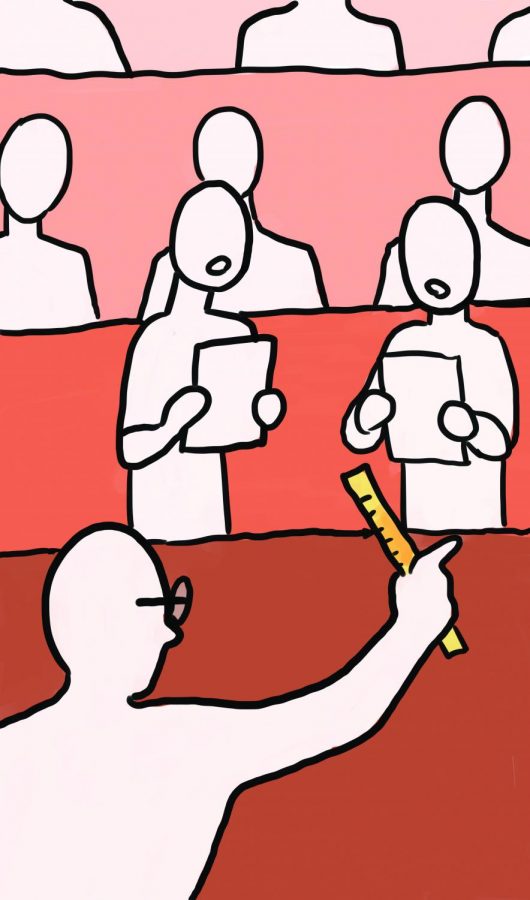OPINION: Be respectful when discussing political views
People have different stances in politics, we don’t need to just yell
It’s awfully fun to get into arguments over anything, but if you really want to get along with people, try to be somewhat nice.
February 10, 2020
High schools should educate on how to have civil political discourse that creates an atmosphere of respect and human decency to one another, regardless of political opinion or identity.
Education on civil political discourse will give Americans the tools and skills they need to help navigate the political divide that separates Americans today, in a respectful and productive manner.
While education in and of itself won’t bind the nation together, or make Americans fully understand each other, it will be a key first step to put our country further down the track of unity.
Having education on productive and respectful civil discourse sounds good on paper, implementing it does pose some difficult questions.
No matter what people believe should be taught in the informational aspect of civics education, one thing remains clear: in order to even consider what needs to get taught, a respectful and productive conversation needs to take place beforehand.
“This really gets at a different set of questions about our implicit biases that we have, biases and prejudices, and knowing how to structure conversations that are critical but at the same time respectful,” Cornell Clayton, director of the Thomas S. Foley Institute for Public Policy and Public Service, said.
In order to have a constructive and productive debate around politics, high schools need to educate students about how to recognize bias and prejudice in themselves. This may sound impossible, but there are resources available to help them down this difficult path.
“I would recommend to high school teachers and students, resources available from the Southern Poverty Law Center. The SPLC has a number of lesson plans and booklets and articles available on how to reduce bias and negative stereotyping,” said Alex Tan, WSU Communication and Society chair, whose research specializes in communication interventions in reducing bias and stereotyping.
Recognizing your own personal bias is crucial to any political conversation because personal identity and political belief are becoming indistinguishable. People no longer think of themselves as Seattleites who happen to be Democrats, they think of themselves as Seattle Democrats.
This makes productive political conversation that much harder. If someone disagrees with another person’s point of view, it doesn’t feel like a political conversation. It becomes Americans attacking each other’s very way of life.
If you can recognize your own personal bias and understand that another person’s identity, whether they are a Christian conservative or an African American democrat, is valid, then you can learn from the other person and form a stronger bond of respect.
Education on bias won’t solve our political crisis. It won’t eliminate prejudice, it won’t stop racism dead in its tracks and it won’t stop identity and politics from becoming inexorably linked. But civil political discourse and the education around it will help heal our country, and it’s something you can be a part of.
“Going into a political conversation with nothing but respect for the individual that you are talking to and an openness to what they’re saying is really important,” Blaine Ross, WSU College Republicans president, said.
The next time you talk with someone with a different viewpoint from you, assume they know something on a deep level that you haven’t even considered, and that just by listening you will grow as an individual.
“You’re not going to change somebody’s mind by yelling at them,” said Geordy Greene, WSU GOP chairman, said. “You are going to change somebody’s mind by having a normal type of conversation with them and relating to the reasons why they think a certain way.”
Try agreeing with something the other person said. If you share a common value, bring up that common value and explain to them why you think a certain way and why they should consider your perspective.
Despite all the benefits to having political discourse that is respectful and healthy, there are times where the person who you are talking to doesn’t have values worth sharing. There is a line to discourse and respect, and that line is crossed when people go out of their way to disrespect others, or when people bombastically announce and excuse their prejudices.
It is critical to extend respect to all other Americans. Yet, if the person you are talking to is a communist or a fascist, and they aren’t showing you a shred of human decency, you don’t need to talk to them.
“It’s hard to have political discourse with people who are fundamentally uncivil,” said Hannah Martian, WSU’s Young Democrats president, said.

















